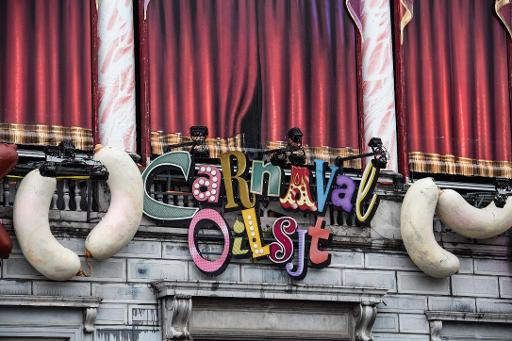The float caricaturing Orthodox Jews during the Aalst Carnival parade did not violate the law, concluded a report by equal opportunities centre UNIA on Thursday.
"We believe there was no deliberate incitement to hatred, discrimination or violence against Jews," the federal centre for equal opportunities declared.
Controversy erupted at the Aalst carnival because of a float exhibiting giant caricatures of Orthodox Jews sitting on bags of gold.
Related News
- Aalst mayor to defend city carnival against UNESCO's anti-Semitism accusations
- Aalst Carnival makes fun of Jews again, despite anti-Semitism accusations over previous edition
UNIA analysed the reported accounts on the basis of legislation and concluded that no law had been breached. "We believe that, within the very specific context of the carnival, there was no conscious incitement to hatred, discrimination or violence against Jews. Moreover, racist ideas were not deliberately disseminated and there was no intention to insult people," the report states.
"Furthermore, the law on Holocaust denial was not violated, and no reference to Nazism or to the Holocaust was made," the report concluded.
However, this incident does plead for future folkloric events — such as carnivals — to be more "comprehensive". We need to work on "stereotypes that lead to prejudice, which in turn can lead to discrimination."
For UNIA, youth movements, schools and associations have a role to play in this area.
UNIA suggests that "dialogue and awareness take priority." "What is hurtful to one person is considered as folklore by another," they said, calling, therefore, both parties to dialogue in an attempt to reconcile. UNIA applied this principle in the context of the Aalst Carnival float, by way of organized discussions between the Forum of Jewish organizations and Carnival representatives.
But, UNIA is concerned about the "harsh response" received by the Carnival group involved in the controversy. "Even cartoon caricatures that strike peoples’ minds unintentionally should not result in threats," UNIA Director Patrick Charlier stated.
The Brussels Times

